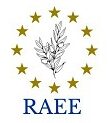Author: Prof. Dr. Mirjam van Reisen
Presentation for: 13th EUSA Conference Baltimore, 11 May 2013
Summary
The ACP Group is the Group of African, Caribbean and Pacific countries, which is historically associated with the European Union and is now almost sixty years old. Covering three continents, the ACP Group originally evolved from the Associated African and Malagasy States (AAMS) established under the Yaoundé Convention, a pioneer agreement with the European Economic Community (EEC) signed in 1963. It is currently comprised of 79 members, with South Sudan expected to enter as the 80th member. The ACP Group spans three continents, six regions and covers 48 countries in
Africa, 16 countries in the Caribbean and 15 countries in the Pacific, with a total population of 980 million people.
Over half of the members of the ACP Group are categorized as LDCs by the UN. Only 9 LDCs are not part of the ACP. In addition the ACP includes 15 landlocked countries and 28 small island states; countries which are facing specific challenges. The Group is therefore the largest group of vulnerable countries. Moreover the ACP Group is also the largest multilateral group after the G77, which has 132 countries, and the United Nations, with a membership of 193 countries. The ACP group and the EU together form the largest group in UN, and comprise a majority.
The formation of the ACP group followed the wave of independence of former European colonies during the 1950s and 60s, and in parallel to the construction of the European Economic Community. The members of the ACP enjoy a special relationship with the EU. The ACP – EU Cotonou Partnership Agreement (CPA) provides the legal base for the relationship in its current form. It covers cooperation in the area of trade, development cooperation, peace-keeping and political dialogue.
The ACP Group has been progressively recognized as an intergovernmental organization under international law. It has the observer status in the UN (since 1981). It is also recognized by international and regional bodies: UN Habitat, WTO, the World Intellectual Property Organization (WIPO), United Nations’ Conference on Trade and Development (UNCTAD), United Nations Scientific and Cultural Organization (UNESCO), Agence Internationale de la Francophonie and the Commonwealth Secretariat. The ACP Group has technical agreements with the World Customs Organization (WCO), the UN Convention to Combat Desertification (UNCCD) and the World Bank.
Total ACP trade accounted for €550 billion in 2010. Its total exports in 2010 had a value of €258.9 billion, and imports had a value of €291.1 billion (Eurostat 2011). The ACP attracts increasing amounts of foreign direct investment (FDI), increasingly from South Africa, Brazil, China, India and Gulf states. In the aftermath of the economic recession Portugal is receiving financial assistance from Mozambique and Angola, and Portuguese professionals are leaving to find employment in Angola (Nossiter, 2011).
The CPA expires in 2020 after a 20-year period. The CPA stipulates that the ACP and the EU must enter into negotiations 18 months before the expiration of the agreement. It is inescapable that at this point the partners of the CPA will have to engage with each other (Nickel, 2012: 6). The world has changed profoundly since the CPA was established and will continue to do so before the agreement ends in 2020. At this point attention is being drawn to the emergence of the BRICS and the enlargement of the EU, developments which have changed the landscape. There is therefore consensus that the ACP – EU relationship will have to undergo a serious revision and re-examination. Some wonder if it will be discontinued altogether.
This paper examines how these questions are being addressed by the institutions and what notions underpin them. I will compare the narratives presented so as to identify if and what common denominators might be emerging between the ACP and the EU on their common future, if any. I will finally present my observations on what I feel are the key questions to consider in a frank and open examination of the future potential of the
ACP – EU special relationship.
